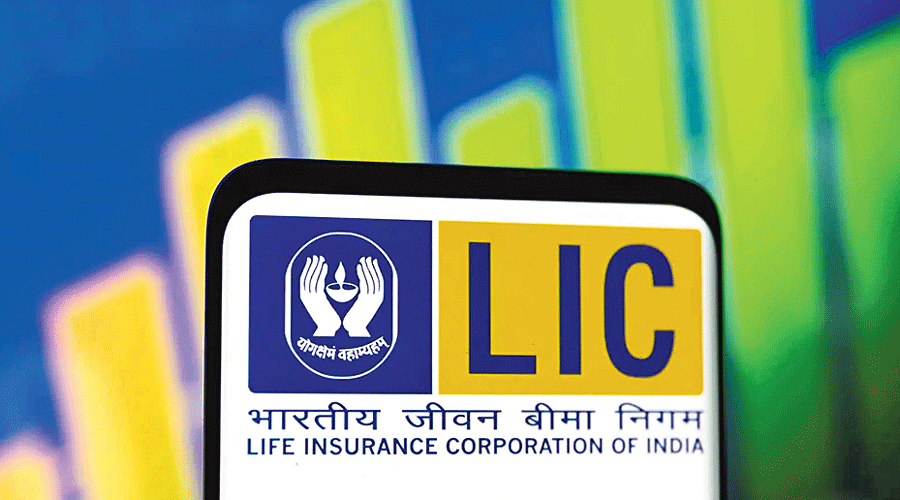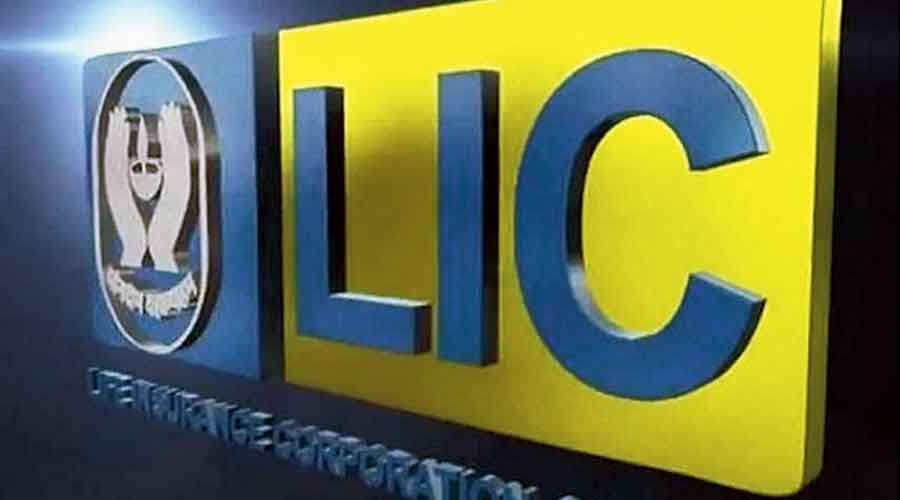The Congress has asked the Narendra Modi government why the Life Insurance Corporation’s valuation of Rs 12 to 14 lakh crore in February 2022 came down to Rs 6 lakh crore in just two months, wondering what was the need for fire sale of one of the world’s most precious insurance companies.
Raising questions ahead of the biggest IPO (initial public offer) in the history of the Indian capital markets, Congress communications chief Randeep Surjewala said: “Our objection is to the intent, purpose and modus operandi of the government. Its desperation to list the LIC IPO, despite lower valuations, non-consideration of vital valuation indices, global uncertainties and a volatile market, is deeply intriguing and highly questionable.”
Surjewala added: “Most experts have said that the LIC shares are now highly undervalued. While filing the prospectus in February 2022 — two months ago — for this mega IPO, the LIC divestment was aimed at 2.5 times the embedded value. Embedded value is the net worth of the company. Now the valuation has been reduced to 1.1 times the embedded value. Why this reduction within two months?”
Although no other market player is as big, the Congress pointed out that HDFC Life Insurance is trading at 3.9 times the embedded value, SBI Life at 3.2 times and ICICI Prudential Life at 2.5 times. “Since February 2022, the share price of LIC has been pared from Rs 1,100 a share to Rs 902-Rs 949 a share. Experts believe this will cause a loss of Rs 30,000 crore to the exchequer,” Surjewala said.
LIC has sought to defend itself by saying in its draft red herring prospectus that “our Indian embedded value results may not be comparable with those of insurers in other jurisdictions…. Our Indian embedded value and our value of new business should not be construed as a direct reflection of our actual market value and performance, nor should they be construed to have any correlation with the price of the equity shares.”
Several brokerages have asked investors to subscribe to the IPO, and one of the reasons behind this recommendation is that the shares are available at a “reasonable valuation” in terms of the significant discount to listed peers like HDFC Life, SBI Life and ICICI Prudential Life. At the upper price band of Rs 949 per share, LIC will be available at 1.1 times its embedded value.
However, at a media conference last week, Tuhin Kanta Pandey, secretary of the department of investment and public asset management, had said the valuation of Rs 12 lakh crore — which was reportedly considered by the government earlier — were mere “guesstimates” and that the Centre had not undertaken any such valuation exercise.
In February 2020, the government had conducted formal road shows for big-ticket investors, pension funds, mutual funds, investment corporations and other such entities across the world. The idea was to collect Rs 75,000 crore by selling a 5 per cent stake in LIC. This target has now been reduced to Rs 21,000 crore by selling a 3.5 per cent stake.
The reasons after the road shows abroad to revise the valuation drastically and reduce the stake sale from 5 per cent to 3.5 per cent remain unknown, Surjewala said.
Accusing the government of ignoring LIC’s high return on equity (ROE), compared with its global peers, Surjewala said: “In 2021, LIC’s ROE was 82 per cent. This is four times its nearest competitor in the world, which is a Chinese company called Ping An Insurance whose ROE was only 19.5 per cent.
LIC’s compound annual growth rate is 5.1 per cent. This makes it the number three company in the world in the insurance sector. In terms of net premium earned — $56 billion — it is the fifth largest in the world. Its market share in India is 64 per cent.
The total value of LIC assets is over $500 billion. “The reason for the government undermining these key indices in arriving at the valuation is unknown again,” Surjewala said.
Recalling that the secretary in charge of public sector divestment had declared that the process was on hold because of market volatility, Surjewala asked: “Why is the government trying to sell LIC when domestic and global financial markets are in turmoil on account of the Russia-Ukraine war?”












